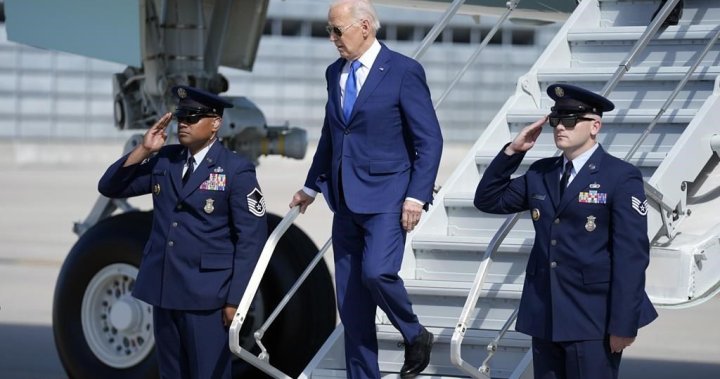
Biden says U.S. won’t supply Israel weapons for Rafah attack
Global News
Biden, in an interview with CNN, said if Israel goes into Rafah, “we’re not going to supply the weapons and artillery shells used, that have been used.”
U.S. President Joe Biden said Wednesday that he would not supply offensive weapons that Israel could use to launch an all-out assault on Rafah — the last major Hamas stronghold in Gaza — over concern for the well-being of the more than 1 million civilians sheltering there.
Biden, in an interview with CNN, said the U.S. was still committed to Israel’s defense and would supply Iron Dome rocket interceptors and other defensive arms, but that if Israel goes into Rafah, “we’re not going to supply the weapons and artillery shells used, that have been used.”
“I made it clear that if they go into Rafah — they haven’t gone in Rafah yet — if they go into Rafah, I’m not supplying the weapons that have been used historically to deal with Rafah, to deal with the cities, that deal with that problem,” Biden said.
The interview marked Biden’s toughest public comments yet about the potential Israeli military operation and followed his decision to pause a shipment of heavy 2,000-pound bombs to Israel last week over concerns that the U.S. ally was moving closer to an attack on Rafah, despite public and private warnings from his administration.
Biden also said the 2,000-pound bombs have been used to kill Palestinian civilians, his most stark public recognition yet of America’s role in the seven-month Israel-Hamas conflict.
“Civilians have been killed in Gaza as a consequence of those bombs and other ways in which they go after population centers,” he said in the interview.
Earlier Wednesday, Defense Secretary Lloyd Austin told a Senate committee that the Biden administration had paused the heavy bomb shipment over concerns about civilian safety in a potential Rafah offensive. He added that the administration was also reviewing some “near-term security assistance shipments” to Israel.
Austin was the first senior Biden administration official to publicly explain the pause, which was first reported last week.


















